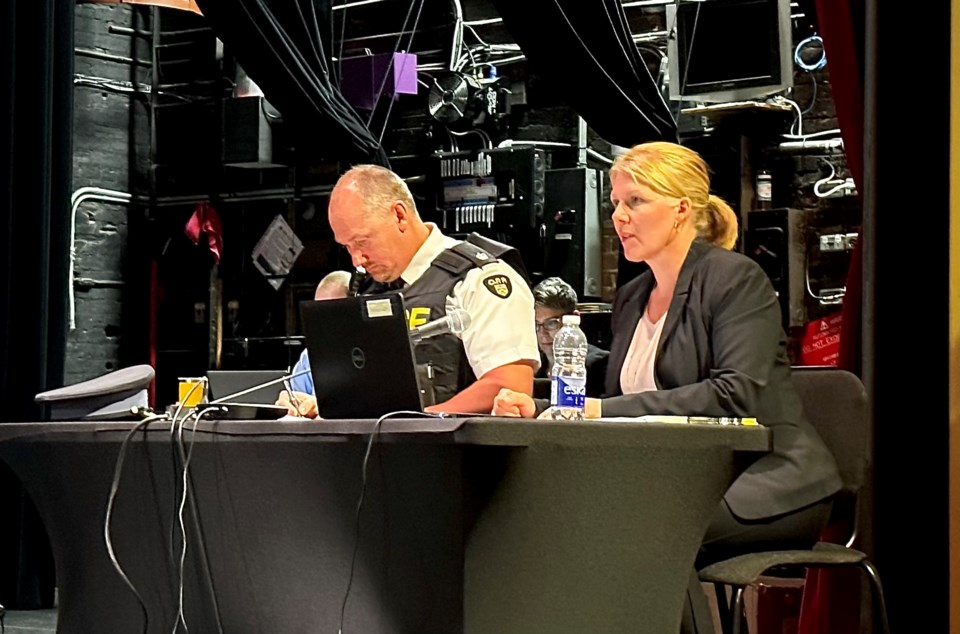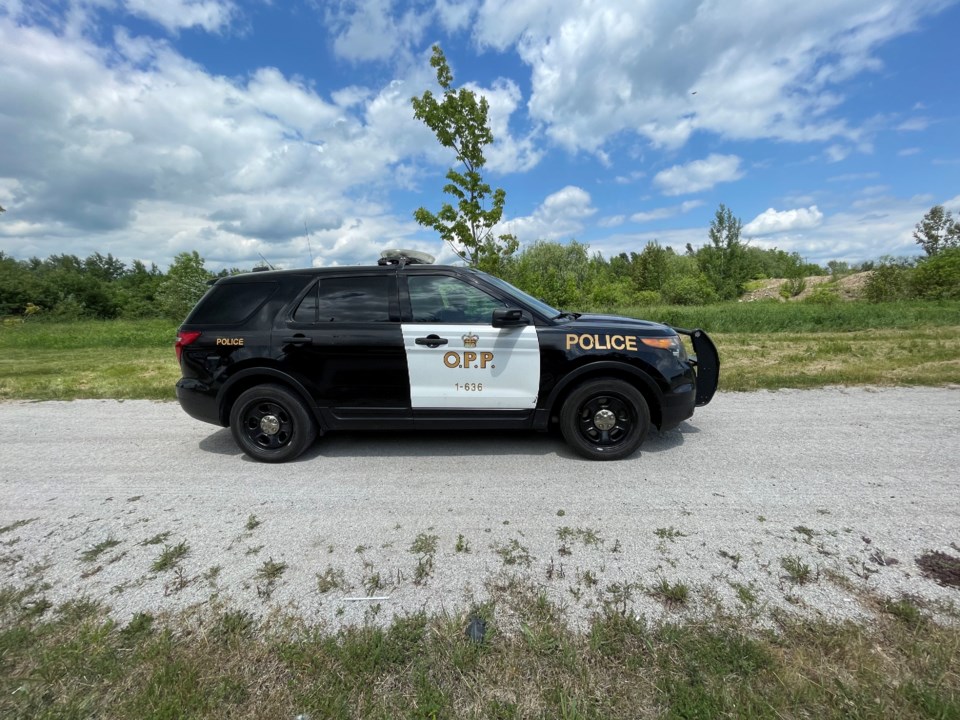How exactly does OPP billing work for Ontario’s municipalities?
OPP Sgt. Lisa Rotar, along with Orillia detachment commander Coyer Yateman, were at Monday’s city council meeting to explain the process and break down Orillia’s $8.75-million bill for 2023.
OPP funding comes from two sources, Rotar explained, with the provincial government and municipalities funding different parts of the police service’s budget.
In 2020-2021, the province paid roughly 65 per cent of the OPP’s $1.259 billion budget, with municipalities funding 33 per cent, or $412 million, of that total.
“(Provincially funded) services are provided to all OPP-policed municipalities, with no cost recovery, and they include our traffic safety investigations (and) intelligence specialized response teams, like tactical response unit, emergency response team, search and rescue, auxiliary unit, community safety, Indigenous policing and our unincorporated territories,” Rotar said.

Municipalities, on the other hand, foot the bill for the staff required to meet local service demands, such as detachment supervision staff, frontline constables, civilian support, and more.
When it comes to a municipality’s bill, Rotar said the cost is determined through two factors – the OPP’s base service cost and the number of calls for service.
“The base service cost is what it takes to run a police organization and to operate and respond province-wide,” she said. “Next would be the calls for service, and these are allocated costs to the municipality based on your individual usage.”
The base service cost is calculated on an equal billing, per-property basis, and then allocated to municipalities, while the remainder of the bill is calculated as a municipality’s percentage of the total calls for service province-wide.
For Orillia, in 2023, the city’s base service cost is $2.63 million at a rate of $165.66 per property.
The city’s calls for service cost is $5.6 million, or 3.13 per cent of the province’s $178,576,909 calls for service bill, at a rate of $352.54 per property.
“The calls for service count uses a four-year average of reconciled calls for service, which is then multiplied by the current average time standard to investigate the call within each billing … work group,” Rotar explained. “Once this is calculated, the percentage of the total provincial wait time for your calls for service is allocated from the $178 million provincial total.”
Accounting for other costs like overtime, prisoner transportation, and more, Orillia’s per property cost for the OPP’s services is $555 in 2023 – compared to the $355 average in 2022 – a figure which has remained relatively unchanged, locally, over the past several years.
Rotar also mentioned that Orillia’s current contract with the OPP expires at the end of 2023, and said that the city will have options for single or multi-year contracts moving forward.
At the meeting, Coun. Ralph Cipolla asked what could be done to take further action on the opioid crisis locally, and questioned what extra resources will be allocated to the issue.
“With respect to funds … those come from either the province or through grants. We have a dedicated team at the detachment that is also incorporated with a more regional provincial team that work in conjunction with each other,” Yateman responded.
“We're conducting large scale investigations," he added.
“As you're aware, grants take a long time,” Cipolla responded. “We need action. We need it now, and I know you guys do a fantastic job in trying to curb it, but I think we really need some action.”
With regard to levels of service, Mayor Don McIsaac questioned whether a request for an increase in service will translate to additional officers addressing a chosen issue, such as the opioid crisis.
“The OPP operates on an integrated service delivery model, so on any given shift officers are between different municipalities, different locations,” said Rotar.
“We don't allocate like a municipal policing model, and that's where they would perhaps allocate a set number of officers, a set number of hours, because again, we have officers responding from all areas (and) specialties as needed," Rotar explained.
“You cannot pay for an enhancement right now. But if you were … you're billed directly for that officer's involvement with what they do, so that it would actually get extracted from what the officer does every day,” added Yateman.
Rotar added that McIsaac presented a “legitimate concern,” but said “if there's something that's happening that needs to be addressed, it comes up through our statistics and analytics and leadership briefings, and that focus will happen as needed.”




